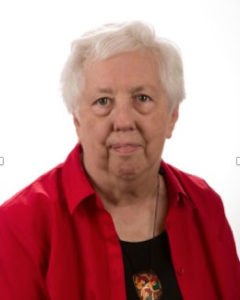Love and Compassion
“But I say to you who are willing to hear: Love your enemies. Do good to those who hate you. Bless those who curse you. Pray for those who mistreat you. If someone slaps you on the cheek, offer the other one as well. If someone takes your coat, don’t withhold your shirt either. Give to everyone who asks and don’t demand your things back from those who take them. Treat people in the same way that you want them to treat you.” Luke 6:27-31
Jesus often showed compassion on those that were on the margin of his society. He would see huge crowds of people “and he had compassion for them and cured their sick”; or he would teach them “because he had compassion for them, because they were like sheep without a shepherd”; or as he went about the cities and villages preaching the good news and healing, he had compassion for the crowds “because they were harassed and helpless”. The word compassion means “suffering with” or literally “to let one’s innards embrace the feeling or situation of another.”
Walter Bruggemann in his book Prophetic Imagination describes compassion as “a radical form of criticism, for it announces that the hurt is to be taken seriously, that the hurt is not to be accepted as normal and natural but is an abnormal and unacceptable condition for humanness.” He goes on to say that Jesus in his showing of compassion is “criticizing the system, forces and ideologies that produce the hurt.” This form of criticism is something that governments and rulers cannot tolerate nor do they know what to do with it. They believe that nations cannot be built on compassion and love, they prefer the “numbness of indifference” to human suffering whether during the time of war or prosperity. Jesus showed compassion and in so doing he clearly exemplified the alternatives to indifference, exploitation, oppression, hate and suffering.
Jesus instructed us to love our enemies; to do good to those who hurt or harm us; to turn the other cheek; to walk the extra mile. In these commands, Jesus was helping us see a non-violent way of opposing what is and presenting the alternative of God’s reign to all God’s people. He is helping us to understand that nothing is impossible with God, even changing the hearts of those who brutalize their fellow human beings is within God’s possibilities.
Here is the scripture from Luke 6 again, this time from The Message by Eugene Peterson:
“To you who are ready for the truth, I say this: Love your enemies. Let them bring out the best in you, not the worst. When someone gives you a hard time, respond with the energies of prayer for that person. If someone slaps you in the face, stand there and take it. If someone grabs your shirt, giftwrap your best coat and make a present of it. If someone takes unfair advantage of you, use the occasion to practice the servant life. No more tit-for-tat stuff. Live generously.”
Think and act on this part of the Good News in the weeks to come.
Featured image: KintsugiLife.com
Joyce D. Sohl, Laywoman-in-Residence
 Joyce D. Sohl has been Laywoman-in-Residence since 2009 as a full-time volunteer. She retired as CEO of United Methodist Women in 2004. She is the author of 4 books, a teacher, retreat leader, writer and non-professional musician. Here at the Center her work is in the area of Spirituality & the Arts with such programs as Tuesdays in the Chapel, Vespers & All That Jazz, Poet’s Corner, quarterly retreats, and art exhibits.
Joyce D. Sohl has been Laywoman-in-Residence since 2009 as a full-time volunteer. She retired as CEO of United Methodist Women in 2004. She is the author of 4 books, a teacher, retreat leader, writer and non-professional musician. Here at the Center her work is in the area of Spirituality & the Arts with such programs as Tuesdays in the Chapel, Vespers & All That Jazz, Poet’s Corner, quarterly retreats, and art exhibits.
